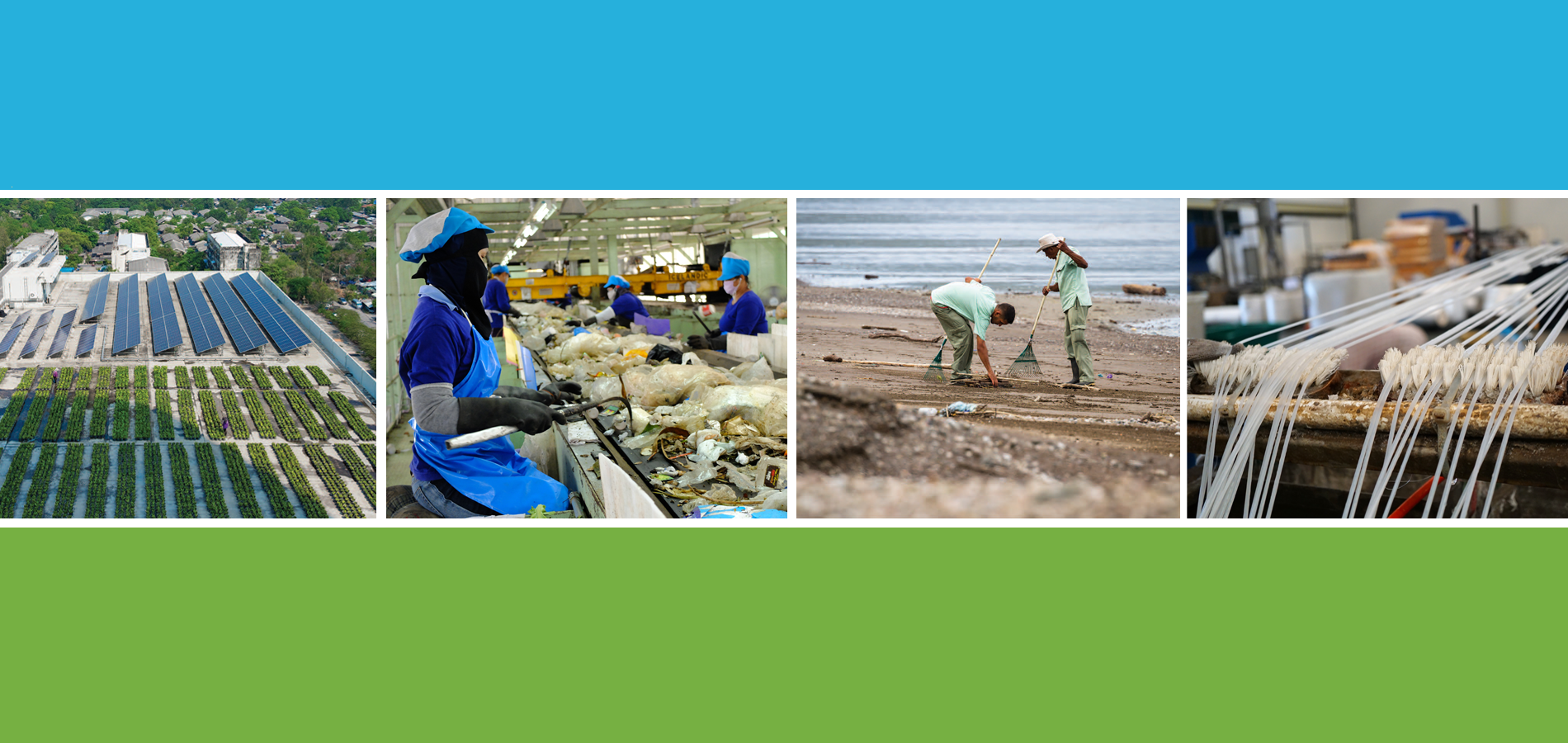The European Commission Directorate International Partnerships (DG IntPa former DG DEVCO) launched the SWITCH to Green Flagship Initiative aiming at facilitating the transition to an inclusive green economy that generates growth, creates decent jobs, and helps reduce poverty while reducing environmental impact. The Flagship initiative links complementary programmes to improve the overall coherence, coordination and visibility of existing and future EU-funded international cooperation initiatives on green and circular economy.
The complementary programmes linked in the SWITCH to Green Flagship (S2G) Initiative contribute to implement the 2030 Agenda for Sustainable Development, in particular goal 12: “Ensuring sustainable consumption and production (SCP) patterns”. The Initiative should also be seen in the context of the EU action plan on circular economy, which acknowledges the global dimension of the circular economy and foresees EU cooperation with international organisations and other interested partners as part of the global efforts to reach the 2030 Sustainable Development Goals.
The S2G Flagship Initiative builds on several initiatives, in particular the SWITCH regional programmes: the SWITCH-Asia programme, the SwitchMed programme, and the SwitchAfricaGreen programme. Further EU funded programmes linked to the Flagship are the SWITCH to Circular Value Chains, Eco Business Africa and the Green Economy Dialogues.
Among others, the Flagship aims to strengthen the linkages between macro-level initiatives -such as the UN Partnership for Action on Green Economy – and micro-level interventions -such as the green business components of the SWITCH regional programmes – in order to reinforce synergies and create stronger enabling environments for green economies.
To support the objectives of the SWITCH to green flagship initiative, the SWITCH to Green Facility was set up to provide technical assistance to staff in the European Commission’s Directorate-General for International Partnerhsips (DG IntPA ), to EU Delegations and to government officials in developing countries.
